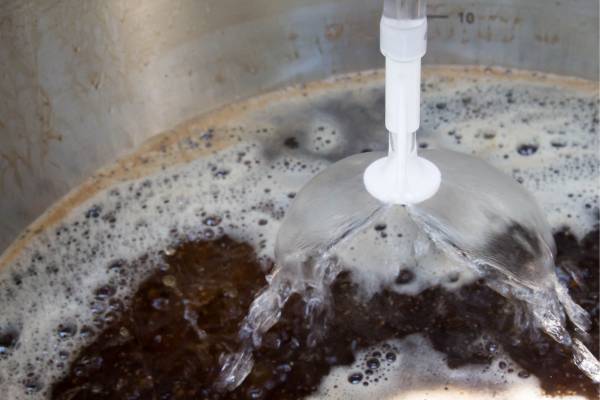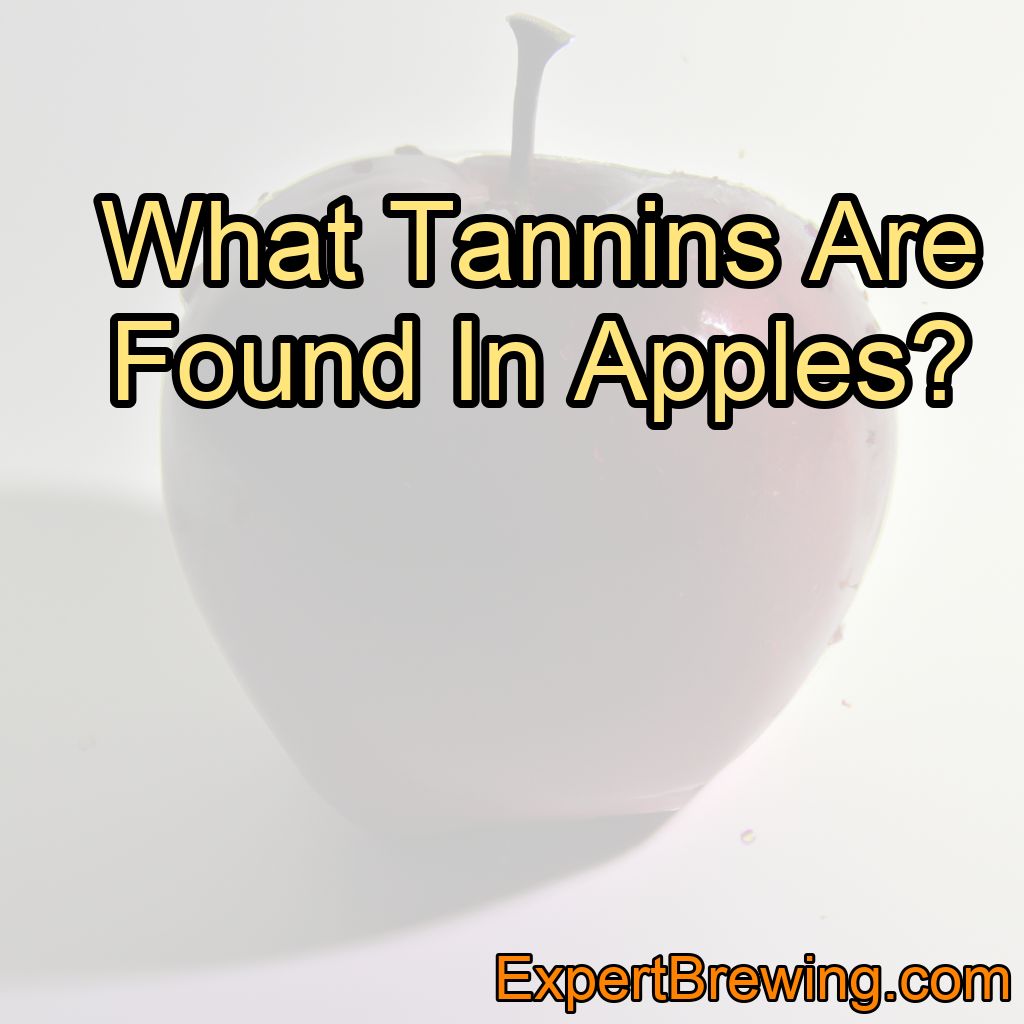Does malt vinegar have alcohol? The short answer is yes, but the alcohol content is usually very low, ranging from 0.1% to 2% by volume.
Malt vinegar is a staple condiment in many households, commonly used for flavoring fish and chips, pickling vegetables, and as a key ingredient in salad dressings.
The process of making malt vinegar involves the fermentation of malted barley, which produces alcohol as a byproduct. In this blog post, we will dive deeper into the world of malt vinegar, exploring its production process, uses, health benefits, and more. Let’s get started!
The Making of Malt Vinegar
Fermentation Process
The production of malt vinegar starts with malted barley, which involves soaking the barley in water to allow it to germinate. The germination process activates enzymes that break down the starches in the barley, converting them into fermentable sugars. The malted barley is then dried and crushed to produce malt.

The malt is mixed with water and heated to extract the sugars, resulting in a sweet liquid called wort. Yeast is added to the wort to initiate the fermentation process, where the yeast consumes the sugars and produces alcohol.
This stage effectively results in a beer-like substance resembling an ale.
Acetification Process
The next step in the production of malt vinegar is the acetification process. Acetobacter bacteria are added to the ale, which converts the alcohol into acetic acid.
This process produces a sour, acidic liquid known as malt vinegar. The acetification process is usually carried out in wooden barrels or stainless steel tanks, which can take several weeks to months, depending on the desired strength and flavor of the vinegar.
Alcohol Content in Malt Vinegar
As mentioned earlier, malt vinegar does contain alcohol, but the amount is typically very low, ranging from 0.1% to 2% by volume.
During the acetification process, most of the alcohol is converted into acetic acid, leaving only trace amounts of alcohol in the final product. Due to its low alcohol content, malt vinegar is considered safe for consumption by those who avoid alcohol for religious or health reasons.
Uses of Malt Vinegar
Malt vinegar is a versatile condiment with a wide range of culinary uses. Some popular uses for malt vinegar include:
– Flavoring fish and chips: Malt vinegar is the traditional condiment used to season this classic British dish.
– Pickling: Malt vinegar is often used as the base for pickling liquids, preserving and flavoring vegetables, fruits, and other foods.
– Salad dressings: Malt vinegar can be used in vinaigrettes and other salad dressings to add a tangy, acidic flavor.
– Marinades: Malt vinegar can help tenderize and flavor meats when used in marinades.
– Deglazing: Malt vinegar can be used to deglaze cooking pans, adding flavor to sauces and gravies.
Health Benefits of Malt Vinegar
Malt vinegar offers several potential health benefits, including:
– Digestive health: The acetic acid in malt vinegar may help improve digestion by increasing the acidity of the stomach, which can aid in breaking down food.
– Blood sugar control: Some studies suggest that consuming vinegar with meals may help reduce blood sugar spikes by slowing the absorption of carbohydrates.
– Weight management: Vinegar consumption has been associated with increased satiety, which could potentially help with weight management.
It’s important to note that research on the health benefits of vinegar is still limited, and more studies are needed to confirm these findings.
Malt Vinegar vs. Other Vinegars
Malt vinegar is just one type of vinegar available on the market. Other popular types of vinegar include apple cider vinegar, white vinegar, balsamic vinegar, and red wine vinegar. Each type of vinegar has its unique flavor profile and uses in cooking. Malt vinegar is known for its strong, bold flavor, making it a popular choice for pickling and seasoning hearty dishes.
Conclusion
In conclusion, malt vinegar does contain alcohol, but the amount is typically very low and not a cause for concern for most people.
This flavorful and versatile condiment is made through the fermentation of malted barley and subsequent acetification process, resulting in a tangy, acidic liquid with various culinary uses.
Here are some key facts about malt vinegar:
- Malt vinegar contains alcohol, but the amount is usually very low (0.1% to 2% by volume).
- Malt vinegar is made through the fermentation of malted barley and the acetification process.
- The production of malt vinegar involves the conversion of starches in barley into fermentable sugars, which are then converted into alcohol and eventually acetic acid.
- Malt vinegar is a popular condiment for flavoring fish and chips, pickling, and as an ingredient in salad dressings and marinades.
- Potential health benefits of malt vinegar include improved digestive health, blood sugar control, and weight management.
- Malt vinegar is just one type of vinegar available, with other popular types including apple cider vinegar, white vinegar, balsamic vinegar, and red wine vinegar.
- Malt vinegar is known for its strong, bold flavor, making it a popular choice for pickling and seasoning hearty dishes.
FAQs
What percentage of alcohol is in vinegar?
Vinegar is a liquid consisting mainly of acetic acid and water, which is produced by the fermentation of ethanol by acetic acid bacteria. The alcohol content in vinegar is typically very low, usually less than 0.5% by volume. This equates to less than 1 gram of alcohol per 100 milliliters of vinegar. Therefore, vinegar is considered non-alcoholic for most practical purposes.
What vinegar contains alcohol?
All vinegars, including white vinegar, apple cider vinegar, red wine vinegar, and balsamic vinegar, are produced through a fermentation process that converts alcohol into acetic acid. Initially, the alcoholic beverage or solution, such as wine, cider, or malt, undergoes fermentation by yeast, converting sugars into alcohol. Then, specific bacteria called acetobacter convert the alcohol into acetic acid, resulting in vinegar. Therefore, during the fermentation process, alcohol is present, but it is converted into acetic acid, making vinegar free of alcohol.
Will vinegar show up on an alcohol test?
No, vinegar will not show up on an alcohol test. Vinegar is a dilute solution of acetic acid, typically containing around 5% acetic acid. Alcohol tests are designed to detect ethyl alcohol (ethanol) in the body, which is a different compound. Ethanol is the main type of alcohol found in alcoholic beverages, while acetic acid is the main component of vinegar. Therefore, if you consume vinegar, it will not result in a positive alcohol test.
Is malt vinegar the same as alcohol vinegar?
No, malt vinegar is not the same as alcohol vinegar. While both types of vinegar are made from alcohol, they differ in terms of the starting material and production process.
Malt vinegar is made from fermented malted barley, often used in the brewing of beer. The process involves converting the barley’s starches into sugars, which are then fermented into alcohol. The alcohol is subsequently oxidized into acetic acid, resulting in malt vinegar. This type of vinegar has a distinct malty flavor and is commonly used in culinary applications, such as pickling, marinades, and dressings.
On the other hand, alcohol vinegar, also known as white vinegar or spirit vinegar, is made from distilled alcohol. The alcohol used can be derived from various sources, including grains, fruits, or sugarcane. Through a two-step process, the alcohol is first converted into acetaldehyde and then further oxidized into acetic acid, resulting in alcohol vinegar. It has a sharp, acidic taste and is often used for cleaning, preserving food, and as a condiment.
In summary, while both malt vinegar and alcohol vinegar are made from alcohol, they differ in terms of the starting material (malted barley vs. distilled alcohol) and the resulting flavors.
Is there any alcohol in wine vinegar?
No, there is no alcohol in wine vinegar. During the process of making vinegar, the alcohol in the wine is converted into acetic acid through fermentation. This fermentation process is carried out by bacteria called Acetobacter, which convert the ethanol in the wine into acetic acid. As a result, the alcohol content is completely eliminated, and what remains is a flavorful vinegar with a tangy taste.
Is vinegar containing alcohol?
No, vinegar does not contain alcohol. Vinegar is produced through a process called fermentation, in which alcohol is converted into acetic acid by the action of bacteria called Acetobacter. During this process, the alcohol content is completely transformed, and the resulting vinegar contains negligible or no alcohol. The alcohol present in the initial fermentation stage is converted into acetic acid, giving vinegar its characteristic sour taste. Therefore, vinegar is considered alcohol-free or non-alcoholic.




